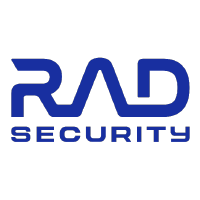Best Docker MCP Servers
Docker is a software platform that allows you to build, test, and deploy applications quickly using containers. Containers let developers package up an application with all of the parts it needs, such as libraries and other dependencies, and ship it all out as one package.
Why this server?
Supports containerized deployment of the Docfork MCP server with a provided Dockerfile configuration
AsecurityAlicenseAqualityProvides up-to-date documentation for 9000+ libraries directly in your AI code editor, enabling accurate code suggestions and eliminating outdated information.Last updated 2 days ago161287426MITWhy this server?
Supports containerized deployment of the SignNow MCP server using Docker and Docker Compose for scalable eSignature workflow management

SignNow MCP Serverofficial
AsecurityAlicenseAqualityhttps://github.com/signnow/sn-mcp-server MCP server for SignNow e-signature: templates, invites, embedded signing/editor, status & downloads.Last updated 2 days ago154MITWhy this server?
Enables running the MCP server in a containerized environment, with configuration options for passing API credentials and environment variables to the Docker container.
GoMITWhy this server?
Can be deployed as a Docker container, making the WeatherXM PRO API available through the MCP protocol
AsecurityAlicenseAqualityWeatherXM Pro MCP ServerLast updated 10 months ago87MITWhy this server?
Enables the execution of malware analysis tools and file management within REMnux containers by leveraging Docker exec, providing an isolated environment for security analysis workflows.

REMnux MCP Serverofficial
AsecurityAlicenseAqualityEnables AI assistants to execute malware analysis tools on a REMnux system via Docker, SSH, or local connections. It provides automated file-type analysis, structured tool discovery, and security guardrails for streamlined malware investigation.Last updated 17 days ago1266537GPL 3.0Why this server?
Provides containerization for the MCP server with gunicorn and multiple uvicorn workers, offering a deployment option with isolation.
AsecurityAlicenseAqualityAn MCP server that provides standardized access to biomedical knowledge bases and resources, enabling AI systems to retrieve verified information from sources like bioRxiv, EuropePMC, and various protein/gene databases.Last updated 2 months ago5220Apache 2.0Why this server?
Enables runtime security analysis of containers, including process behavior monitoring, baselines, and container inventory management.

RAD Securityofficial
AsecurityAlicenseAqualityCP server for RAD Security, providing AI-powered security insights for Kubernetes and cloud environments. This server provides tools for querying the Rad Security API and retrieving security findings, reports, runtime data and many more.Last updated a month ago652475MITWhy this server?
Provides Docker container deployment option for running the MCP server with configurable environment variables
Apache 2.0Why this server?
Provides containerized deployment of the server with Docker, allowing isolated execution with proper credential configuration.

Graphistry MCPofficial
AsecurityAlicenseAqualityGPU-accelerated graph visualization and analytics server for Large Language Models that integrates with Model Control Protocol (MCP), enabling AI assistants to visualize and analyze complex network data.Last updated 5 months ago171210MIT